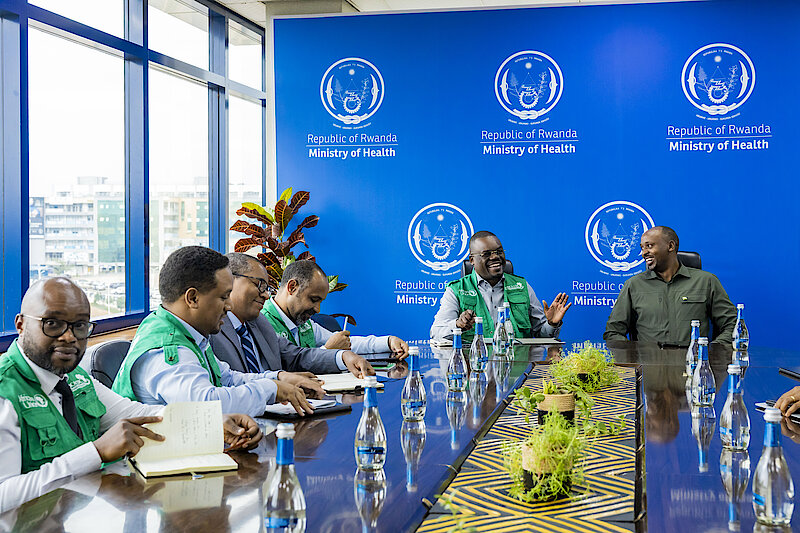The World Health Organisation (WHO) has praised Rwanda’s response to the ongoing Marburg outbreak, urging the country to maintain its efforts as it battles one of the world’s most lethal viruses.
Since the outbreak was declared in late September, Rwanda has recorded 62 confirmed cases and 15 deaths. However, no new cases have emerged in the past six days, and 44 people have recovered.
WHO Director-General Tedros Adhanom Ghebreyesus visited Kigali to assess the situation and lauded Rwanda’s management of the crisis. “We’re pleased to see that there have been no new cases in the past six days, and we hope that remains the case,” he said during a press conference in the capital.
“But we are dealing with one of the world’s most dangerous viruses, and continued vigilance is essential.
“Enhanced surveillance, contact tracing and infection prevention and control measures must continue at scale until the outbreak is declared over.”

A Marburg outbreak can only be considered over after 42 days—equivalent to two consecutive incubation periods—without any new confirmed cases.
Marburg virus, which originates from fruit bats, is part of the same filovirus family as Ebola and has a fatality rate of up to 88%. The current outbreak, however, has a lower case fatality rate of 24%. The virus causes a haemorrhagic fever marked by bleeding and organ failure.
During his visit on Saturday, Tedros toured a treatment centre housing the remaining patients. “We met two patients who had severe symptoms, including multiple organ failure. They were placed on life support and successfully intubated and extubated, and are now recovering,” he explained. “This is believed to be the first time patients with Marburg have been extubated in Africa, a development that would have been impossible in past outbreaks.”
Currently, no officially approved vaccines or antiviral treatments for Marburg exist, but experimental options, such as blood products, immune therapies, and drug treatments, are under evaluation. Earlier this month, Rwanda launched a vaccination programme using a trial vaccine.


